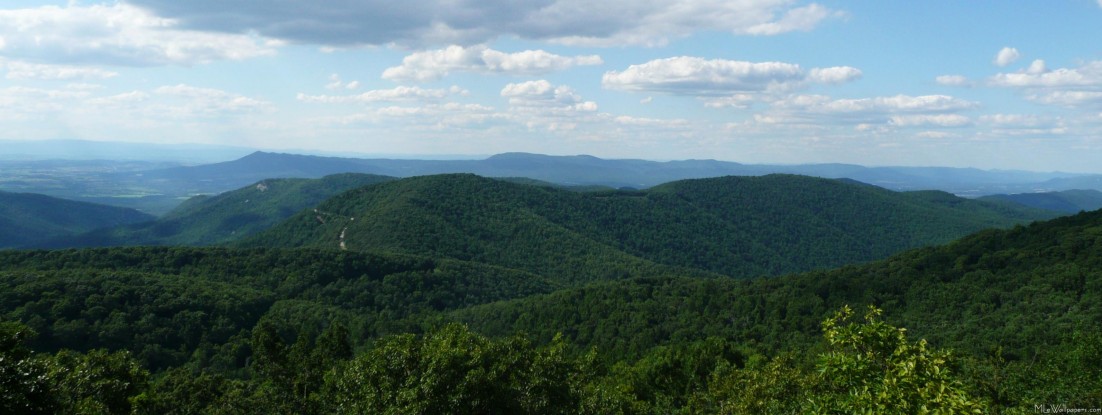This meeting has raised lots of interesting questions for me and other issues that need more consideration. However, here is one I feel like I have a pretty good handle on for the sake of a blog post.
Back home, in southern West Virginia, we all shy away from the terms environmentalist and environmentalism. In a region where “tree hugger” is hurled as a derogatory slur, the local population associats the notion of caring for the environment as something that only privileged outsiders have the time or means to do. Outsiders of the region and the motivation for their interest in our region is always viewed with skepticism and environmentalists or “tree huggers” are viewed in a negative light. This issue was discussed in a session regarding a book Our Roots Run as Deep as Ironweed about female activists in Appalachia. The work was built on a number of interviews with Appalachian women who have found their way to the front lines of the battle to protect their communities from the numerous threats posed to them my mountaintop removal mines and associated environmental degradation.
Despite the fact that these women are fighting to protect the quality of the air and water that their children breathe and drink, many, if not all, would not classify themselves as environmentalists. I understand why they feel this way, at least in my gut, because I know how I felt about the so-called tree huggers when I was growing up in McDowell County. So even while these women are fighting the same fight as their tree-hugging, outsider counterparts, probably working hand-in-hand with those that would readily identify themselves as environmentalists, they hesitate to call themselves environmentalists or even to see themselves as such.
Should there be such a stigma in central Appalachia associated with protecting the environment? Are there ways to get beyond this stigma so that locals can take pride in protecting their environment, including themselves? This stigma did not simply materialize out of thin air. The corporate interests in this part of the state (coal, natural gas, and timber industries) have always sought to weaken environmental regulation or even the prospect of regulation in the region. One of the corporation’s most effective campaigns has been to portray the environmental groups that would come to the region as “hippie” outsiders who were actually more concerned with themselves and the trees than the people living in Appalachia. In other words, environmentalism was more of the same cultural exploitation that descended on the region during the war on poverty, when outside journalists exported picture after picture of impoverished, backwards, inbred, toothless hillbillies. It was an effective tactic on the part of the corporations. Environmentalism or having a general concern for the environment was largely associated with protecting animals and trees at the expense of the people. Thus, a tree hugger cared more for about the trees and squirrels than they did for people. Since they were all hippie outsiders who were likely to be communists that probably smoked a lot of weed and hated “america,” the term “tree hugger” became a term to be avoided. Since I believe that many consider an environmentalist to be synonymous with tree hugger, anyone from back home would reasonably be hesitant to call themselves an environmentalist.
I think this is unfortunate that the powerful external corporations have been allowed to determine whether we think of ourselves as protectors of our environment. We distance ourselves from environmental struggles at our peril and to our own misfortune. We should not make the distinction between caring for the trees, fish, deer, birds, and salamanders and caring for people. A basic understanding of ecology informs us that we, human beings, all require a healthy environment with clean air, clean water, and unadulterated food supplies to thrive. An environmentalist or one who seeks to preserve and protect the environment is working to protect people equally as much as they are working to protect the trees and animals due to this interconnectedness.
As a culture that once entirely subsisted on the land, Appalachians should understand better than most the dependence of the health of people on the health of the land as it should be ingrained in our DNA. Just as we do not want to let outsiders to tell us how to fight for our environment, we should be equally resistant to allowing external corporate interests remove us from our environment, causing us to see ourselves and our well-being as distinct from health of our streams, our fish, and our forests. I suggest we take back the terms environmentalism, environmentalist, even tree hugger. Because we are all environmentalists.
Last May, during a visit to Charleston, I saw a bumper sticker on a pickup truck that read Coal Hugger. I guess a Coal Hugger is supposed to be the opposite of a Tree Hugger. Since I am arguing that being a “tree hugger” is just as much about protecting people as it is protecting trees, I suggest Hillbilly Hugger as the counter sentiment to the misguided Coal Hugger sticker. Why use the term Hillbilly? Because that’s obviously another term we need to take back!
